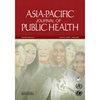Variations of Eating Behaviors Among Vietnamese Preschool Children and Their Association With Children’s Anthropometric Z-Scores: Results From Analyses of the Children’s Eating Behavior Questionnaire in 10 000 Children
IF 1.4
4区 医学
Q3 PUBLIC, ENVIRONMENTAL & OCCUPATIONAL HEALTH
引用次数: 0
Abstract
Eating behaviors, which are shaped during childhood, are one of the important factors influencing children’s growth. This study aimed to investigate the variations in eating behaviors among Vietnamese preschool children aged 3 to 6 years using the Children Eating Behavior Questionnaire (CEBQ) and their association with anthropometric Z-scores. A cross-sectional study was conducted on 10 172 children from 36 to 72 months old, recruited from three different socioeconomic regions of Hanoi. Differentiation of eating behaviors between two sexes was observed across all age groups, but most obvious at 36 to 48 months of age. The subscales of emotional overeating (EOE), enjoyment of food (EF), and desire to drink (DD) were higher in 60- to 72-month age groups and vice versa for slowness in eating (SE) and emotional undereating (EUE) subscales. Analyses using the general linear model showed that CEBQ subscales were associated with anthropometric Z-scores in both girls and boys.越南学龄前儿童饮食行为的变化及其与儿童人体测量 Z 值的关系:万名儿童饮食行为问卷的分析结果
儿童时期形成的饮食行为是影响儿童成长的重要因素之一。本研究旨在使用儿童饮食行为问卷(CEBQ)调查 3 至 6 岁越南学龄前儿童饮食行为的变化及其与人体测量 Z 值的关系。这项横断面研究从河内市三个不同的社会经济地区招募了 10 172 名 36 至 72 个月大的儿童。在所有年龄组中都观察到了男女儿童饮食行为的差异,但以 36 至 48 个月大的儿童最为明显。情绪性暴饮暴食(EOE)、享受食物(EF)和饮酒欲望(DD)的分量表在 60 至 72 个月年龄组中较高,而进食缓慢(SE)和情绪性不节食(EUE)的分量表则相反。使用一般线性模型进行的分析表明,CEBQ 分量表与女孩和男孩的人体测量 Z 值相关。
本文章由计算机程序翻译,如有差异,请以英文原文为准。
求助全文
约1分钟内获得全文
求助全文
来源期刊

Asia-Pacific Journal of Public Health
医学-公共卫生、环境卫生与职业卫生
CiteScore
3.30
自引率
4.00%
发文量
147
审稿时长
6 months
期刊介绍:
Asia-Pacific Journal of Public Health (APJPH) is a peer-reviewed, bimonthly journal that focuses on health issues in the Asia-Pacific Region. APJPH publishes original articles on public health related issues, including implications for practical applications to professional education and services for public health and primary health care that are of concern and relevance to the Asia-Pacific region.
 求助内容:
求助内容: 应助结果提醒方式:
应助结果提醒方式:


